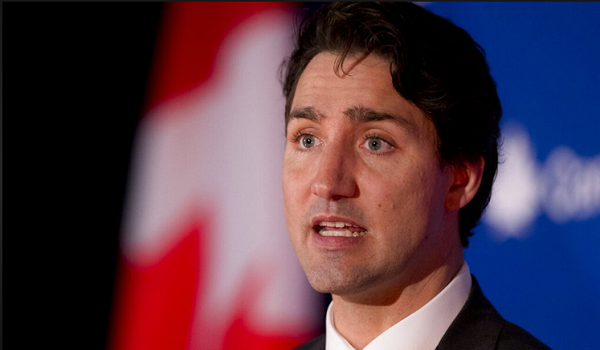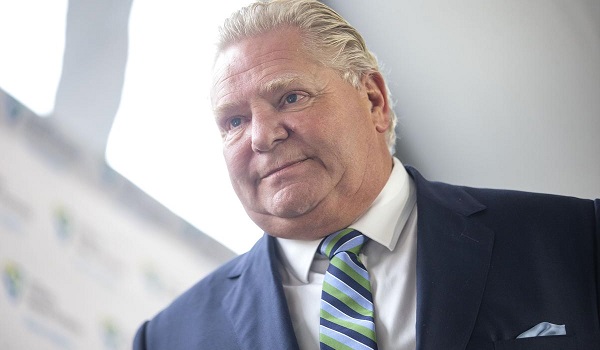Fall economic statement will affect your finances, from mortgages to the carbon rebate in these ways
On a tumultuous day in Ottawa, marked by Chrystia Freeland stepping down as finance minister and deputy prime minister, the federal government released a fiscal update that contains several pocketbook measures.
In addition to a previously announced initiative to provide low-cost loans of up to $80,000 for homeowners to build secondary suites, Prime Minister Justin Trudeau’s government presented changes that include scrapping the mortgage stress test for more borrowers, expanding eligibility for the carbon pricing rebate, introducing automatic tax filing and exempting the federal disability benefit from tax.
Ms. Freeland’s abrupt resignation has prompted speculation that a new federal election may be near, which could prevent the Trudeau government from implementing much of the economic agenda it laid out on Monday.
Still, here are the key measures affecting Canadians’ finances.
No trace of the $250 cheques:
The federal government had announced a two-part plan last month to spend $6.28-billion to exempt select items from the federal goods and services tax for two months around the holiday period, a measure that took effect on Saturday, and to send most working Canadians $250 in April.
But the economic statement contains no trace of the second measure, which has so far failed to garner the support of the NDP. The party had asked for the payments to go to people with disabilities and retirees as well.
Removing the mortgage stress test for more borrowers:
Ottawa is eliminating the mortgage stress test for borrowers with at least 20 per cent of equity in their homes who switch to what’s known as an insurable loan at renewal.
Insurable mortgages are loans of up to 80 per cent of the value of a home on which lenders purchase a type of default insurance known as bulk or portfolio insurance. The option is available for purchase prices of under $1-million and amortizations of up to 25 years.
Bulk insurance is different from the kind of default mortgage insurance that’s mandatory for borrowers who put down less than 20 per cent, who pay for the coverage out of pocket. With insurable mortgages, lenders usually pay the premiums.
But because bulk insurance helps lenders reduce the risk linked to potential borrower defaults, insurable loans typically come with attractive interest rates.
The new rules will allow some borrowers with significant equity in their home but high debt-to-income ratios that would have made it hard to pass the stress test to access better rates at renewal, according to mortgage strategist Robert McLister.
The change took effect Monday.
More Canadians to receive the rural supplement for carbon pricing rebates:
Ottawa promised to expand the eligibility criteria for the top-up of the federal carbon pricing rebate reserved for rural residents.
Currently, the payments go to tax filers in Alberta, Saskatchewan, Manitoba, Ontario and the Atlantic provinces. In addition to the base amount, those living in areas outside a Census Metropolitan Area, or CMA, as designated by Statistics Canada, receive a 20-per-cent rural supplement.
The changes would extend eligibility for the additional amount to those who, within a CMA, live in what Statscan calls a census rural area (fewer than 1,000 individuals) or a small population centre (fewer than 30,000 individuals).
Automatic tax-filing:
The government said it’s working on legislation to allow automatic tax-filing, beginning with lower-income Canadians as soon as the 2025 tax year.
The Canada Revenue Agency would send eligible Canadians a pre-filled return based on information it already has and provide the opportunity to modify the documents or opt out of automatic filing. Those who do not opt out would have their returns filed on their behalf by the tax agency.
Anti-poverty groups have long advocated for automatic tax-filing as a way to help marginalized taxpayers claim the benefits they’re entitled to.
The government said it’s also exploring expanding this option to middle-class Canadians with simple tax situations, although it did not provide a timeline for that.
Exempting the new federal disability credit from tax:
Ottawa said it would introduce legislation to exempt the new Canada Disability Benefit from being considered as income under the Income Tax Act, similarly to how the Canada Child Benefit is currently treated.
The new benefit, slated to start in July, will provide $200 a month to eligible recipients with disabilities.
Exempting the benefit from tax means the payments won’t affect eligibility for other federal income-tested benefits and programs, including the federal child benefit.
However, the measure would not eliminate the possibility of automatic clawbacks of social assistance benefits.
Stricter rules on payday loans:
After introducing new interest rate limits that will take effect at the start of 2025, Ottawa wants to further tighten rules for payday loans, requiring the industry to accept payments in instalments and to offer a minimum repayment term of 42 days.
The federal government also wants to prohibit payday lenders from selling creditor insurance, which helps borrowers and their families pay off debt in case of job loss, disability, critical illness or death.
Consumer advocates and some financial regulators have long warned that this type of insurance often saddles borrowers with steep costs that can sometimes exceed the amount borrowed. Lenders have also come under scrutiny for using questionable tactics to sell the product.
While the Department of Finance proposed introducing new restrictions on credit insurance on payday loans as well as other types of high-cost debt this summer, the fall economic statement focused only on payday loans.
This article was first reported by The Globe and Mail












